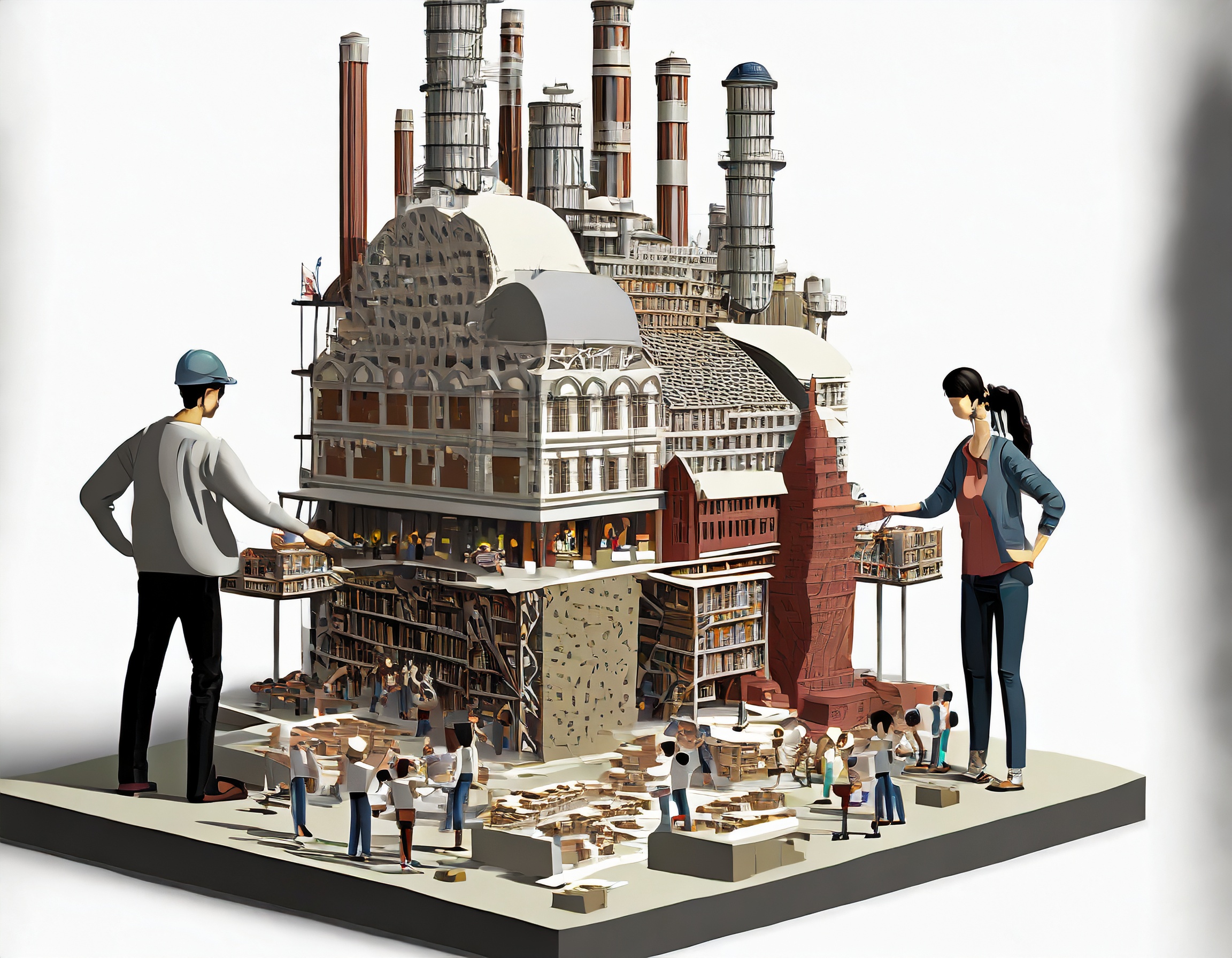
Last year I published “The Lankes Corollaries” in the Access: An International Journal of Nepal Library Association. I have recreated it here…and enhanced it a bit (it was published with a creative commons license). To cite it, please support my colleagues in Nepal:
Lankes, R. D. (2023). The Lankes Corollaries . Access: An International Journal of Nepal Library Association, 2(01), 200–208. https://doi.org/10.3126/access.v2i01.58999
Abstract: This piece explores a series of corollaries to Ranganathan’s five laws of librarianship. These corollaries talk about how librarians work with communities to ensure that service is shaped throughout the community. Such shaping moves libraries away from some pre-determined standard model, and into hyperlocal organizations ultimately facilitating knowledge creation.
Introduction: In 1931 S. R. Ranganathan proposed 5 laws of librarianship (Ranganathan, 1931)
- Books are for use
- Every person his or her book
- Every book its reader
- Save the time of the reader
- A library is a growing organism
While others have tried to expand/revise/or update them (Gorman, 1998, Simpson 2008), the originals stand up. Clearly today we would expand books to resources and even services (e.g., services are for use) and readers have become members or just “people” – as we see that the library is a part of a person’s life – hopefully a significant part.
However, Ranganathan was clearly being aspirational: what we want to be, not so much how we get there. What I propose are 5 corollaries to the laws–guide post for library workers and organizations to achieve these lofty goals:
- The mission of librarians is to improve society through facilitating knowledge creation in their communities
- To be a librarian is to be a radical positive change agent with your community
- A room full of books is a closet, but an empty room with a librarian serving their community is a library
- Bad libraries build collections, good libraries build services, great libraries build communities
- A library should be a safe space to explore dangerous ideas.

I disagree with the first 4 of your propositions.
I would say that the purpose of a library is to help any person find what they want to read. That is what the collections are for and the librarian is there to help.
The idea that a librarian is a ‘radical change agent’ might entertain librarians, but it is not what readers want or need. It is both readers and authors that matter, librarians are there to bring them together.
Much damage has been done by the attempts to redefine and elevate the role of the librarian. It has meant that they risk not providing the service they should.
Hi Tim, I’m impressed we found one item to agree on 🙂 The true danger I see in flattening the relationship between a librarian and their community, and reducing the role of a librarians to a clerk, is it ignores the vital role libraries of all types have played in preserving democratic access to ideas and connecting communities together. For a century librarians have fought to expand the set of ideas that communities can access beyond their societal privilege. From fighting to collect fiction and the literary novel in the late 19th century, to licensing business databases and government repository programs in the 20th. These weren’t simply a fight for more reading materials, but for transparency and equity.
Even if you build a frame around facilitating a connection between reader and author, you see that the work of librarians is, in fact, about change, and is, in fact, radical. Look no further than the book challenges here in the US (and abroad). The act of balancing competing ideologies, motivations, moral outlooks, and concepts of “parental rights” is not a simple matter of putting the adult books in another section. It takes professional with an understanding of community power, and a concrete concept of intellectual freedom to create a library where, the corollary we agree on, matters: “A library should be a safe space to explore dangerous ideas.”
The real issue is that as libraries and society continue to evolve, libraries need to continue to look more and more like their local communities (towns, universities, schools, hospitals). In some places that will be bookstores and reading nooks. In others they will be tech hubs in others business centers. But in all of them we need librarians that don’t flatten human beings to users or readers or authors, or any single-dimensional profiles. We need knowledge advocates who can see the complexity of something as seemingly simple as connecting a reader to an author.